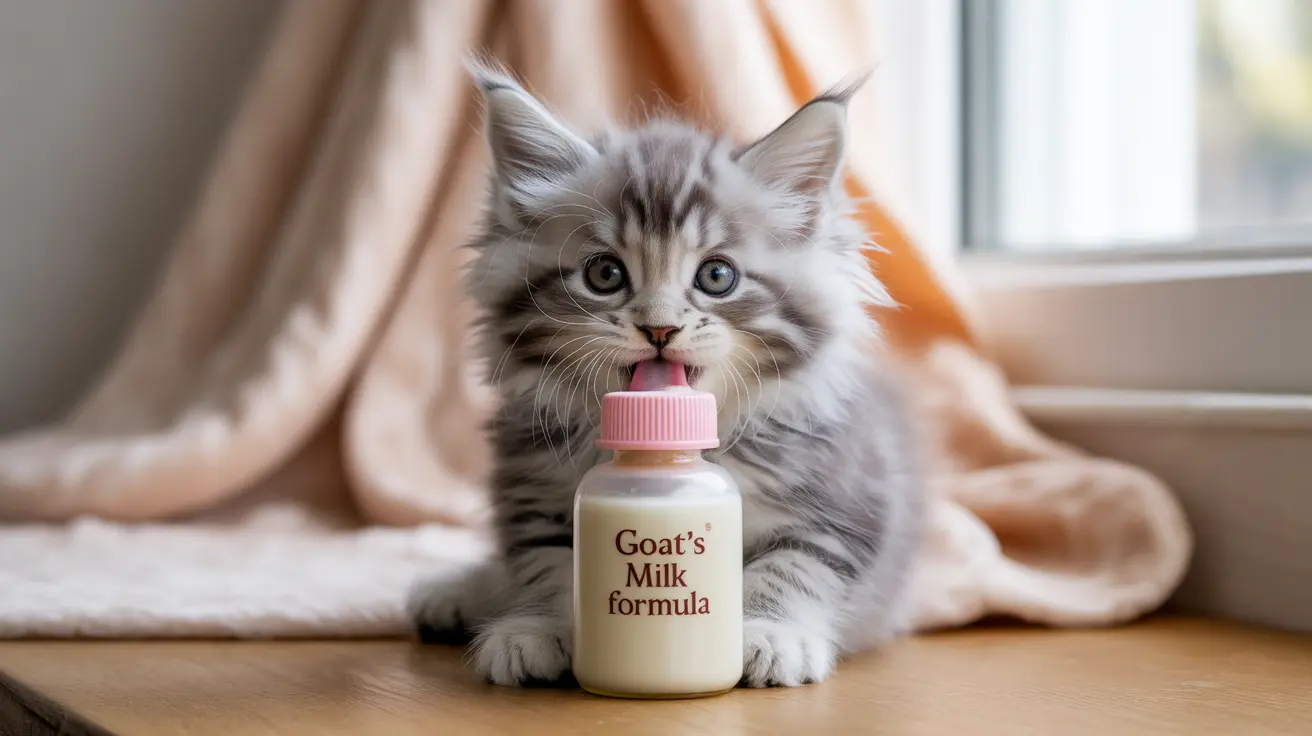When commercial kitten milk replacer isn't available, knowing how to make a safe and nutritious homemade kitten formula can be lifesaving. While veterinarians strongly emphasize that commercial formula is always preferred, understanding emergency alternatives is crucial for kitten caregivers.
In this comprehensive guide, we'll explore veterinarian-approved homemade kitten formula recipes, crucial preparation guidelines, and essential safety considerations. Remember, these recipes are intended only for short-term emergency use until proper commercial milk replacer can be obtained.
Veterinarian-Approved Emergency Formula Recipes
Goat's Milk-Based Formula Recipe
This recipe is often considered the safest emergency option due to goat milk's digestibility:
- 1 quart whole goat's milk
- 1 teaspoon light Karo syrup
- 1 tablespoon nonfat plain yogurt
- 1 egg yolk
- Knox unflavored gelatin (quantity varies by kitten age)
Evaporated Milk Formula Alternative
When goat's milk isn't available, try this alternative:
- 1 can (12 oz) evaporated milk
- 1 egg yolk (cooked)
- 2 tablespoons light corn syrup
- 1 tablespoon plain yogurt
Safe Preparation and Storage Guidelines
Proper preparation is crucial for kitten safety:
- Thoroughly clean all preparation materials
- Warm ingredients to 95-100°F before mixing
- Blend thoroughly to eliminate lumps
- Store in sterile containers
- Refrigerate unused portion immediately
- Discard after 24 hours
Feeding Instructions and Schedule
Follow these critical feeding guidelines:
- Warm formula to body temperature before each feeding
- Test temperature on your wrist
- Feed only in a belly-down position
- Use kitten-specific nursing bottles
- Monitor for signs of fullness or distress
Age-Based Feeding Schedule
- 0-1 week: 2-6ml every 2-3 hours
- 1-2 weeks: 6-10ml every 3-4 hours
- 2-3 weeks: 10-14ml every 4 hours
- 3-4 weeks: 14-18ml every 4-5 hours
Health Monitoring and Warning Signs
Watch carefully for these indicators:
- Weight loss or failure to gain
- Lethargy or weakness
- Diarrhea or constipation
- Refusing formula
- Breathing difficulties
Frequently Asked Questions
What is the best homemade kitten formula recipe approved by veterinarians for emergency feeding?
The most recommended emergency recipe uses goat's milk as a base, combined with egg yolk, plain yogurt, and unflavored gelatin. This combination most closely mimics the digestibility and nutritional profile of mother's milk for short-term use.
How do I safely prepare and store homemade kitten formula to prevent bacterial contamination?
Prepare formula with sterilized equipment, store in clean containers, refrigerate immediately after preparation, and discard unused portions after 24 hours. Always warm to body temperature before feeding and never reuse leftover formula.
Why is commercial kitten milk replacer preferred over homemade formulas for long-term feeding?
Commercial replacers are specifically formulated to provide all essential nutrients, including taurine, vitamins, and minerals, in the correct proportions for optimal kitten development. Homemade formulas lack these precise nutritional ratios and should only be used temporarily.
What ingredients should I avoid when making homemade kitten formula and why?
Avoid honey (risk of botulism), regular cow's milk (causes digestive issues), and human baby formula (inadequate nutrition). Never use expired ingredients or those containing artificial sweeteners.
How often and how much homemade formula should I feed a newborn or orphaned kitten?
Newborn kittens need feeding every 2-3 hours, including overnight. Start with 2-6ml per feeding in the first week, gradually increasing amounts as they grow. Always feed based on the kitten's weight and hunger cues.
Remember, while these homemade formulas can be lifesaving in emergencies, obtaining commercial kitten milk replacer should be your top priority for ensuring optimal kitten health and development.






